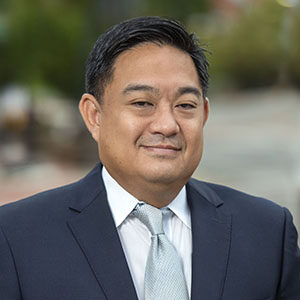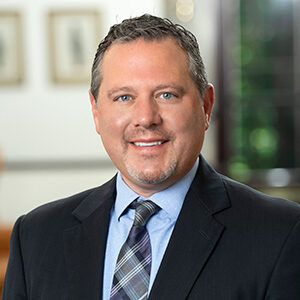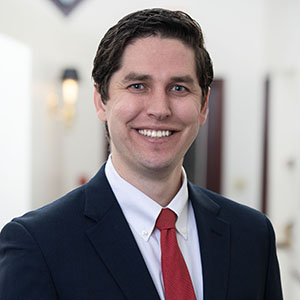Estate Planning
 Contrary to what many people think, comprehensive estate planning isn’t about death – it’s about life. It’s about the life you want for yourself and your loved ones in the years ahead. It’s about protecting and reaping the rewards of a lifetime of hard work. And it’s about the lives of the ones you love and care for, ensuring that you continue to provide for them after you’re gone.
Contrary to what many people think, comprehensive estate planning isn’t about death – it’s about life. It’s about the life you want for yourself and your loved ones in the years ahead. It’s about protecting and reaping the rewards of a lifetime of hard work. And it’s about the lives of the ones you love and care for, ensuring that you continue to provide for them after you’re gone.
At Kreis Enderle, our Estate Planning attorneys work with individuals and families to craft the documents and establish the mechanisms to provide them with clarity, security, and peace of mind. We understand how profoundly personal estate planning is, and we recognize that it can sometimes be a difficult and confusing process. That is why we compliment our experience and knowledge of the law with empathy, respect, and an approach that focuses not just on the legal documents in an estate plan – but also on the people for whom the plan is crafted.
What a Comprehensive, Personally Tailored Estate Plan Can Do for You and Your Family
Every client comes to the estate planning process with their own unique circumstances, priorities, and goals. But all well-crafted estate plans can address universally shared personal, financial, and practical objectives, such as:
- Protecting your assets from creditors and others.
- Minimizing your tax liabilities.
- Designating a trusted loved one to provide for the care and custody of your minor children in the event of an unexpected tragedy.
- Distributing your assets according to your wishes to minimize court involvement or reduce the likelihood of family conflict after you are gone.
- Providing a loved one with special needs with the care and resources they need throughout their life.
- Helping you qualify for Medicaid benefits that can pay for care at a nursing home, assisted living facility, or long-term care while preserving your assets for yourself and your children.
- Giving your loved ones and your physicians clarity and direction about your healthcare wishes and financial affairs decisions if you become incapacitated and are unable to make decisions for yourself.
We help clients reach these goals by strategically using the full array of available estate planning documents and mechanisms, choosing, tailoring, and personalizing each one for optimal effectiveness. Our full suite of estate planning services include:
- Wills, Trusts, Powers of Attorney
- Succession Planning
- Wealth Transfer Planning
- Asset Protection Planning
- Prenuptial Agreements
- Elder Law and Long-Term Care Planning
- Guardianships and Conservatorships
- Medicaid and Veterans Administration Benefits Qualification
- Probate & Trust Administration
- Will, Trust and Fiduciary Litigation (e.g., claims of undue influence; misappropriation of assets)
 Estate Planning FAQs:
Estate Planning FAQs:
What’s the difference between a will and a trust?
A will is essentially a letter of direction to the court. It instructs the judge to designate who is in charge of administering your estate and sets forth how you want to distribute your assets. Trusts work either independently or in conjunction with a will and provide many distinct benefits. While both go into effect upon signing, a will does not consider the need for incapacity planning that a trust offers. While a will takes effect only after you pass away, a trust becomes effective upon execution. In a trust, you identify specific assets (real property, stocks, money, etc.) that are transferred to the trust.
During your life, you are in control of the trust and all of its assets. When you pass away, your appointed trustee will ensure your wishes are carried out according to your specific terms. You select a trustee (a bank, attorney, trusted relative, etc.) to administer the trust for your benefit. While little changes in terms of how you use and enjoy any assets in the trust, transferring ownership now keeps those assets out of probate (the court process of officially recognizing transfers of ownership upon death) and can also remain private. After you pass away, the assets are managed and distributed per your wishes as outlined in the trust
There are also several specialized trusts you can establish to manage and distribute assets, such as special needs trusts that provide for the care and well-being of children and adults with special needs.
Why is it important to have a power of attorney?
So much of estate planning is about making decisions about what happens to your assets and how to protect your family after you die. But the unfortunate reality is that many of us may face situations where we can no longer make decisions while still alive. For example, a catastrophic accident, terminal illness, or other circumstance may leave us incapacitated and unable to handle our affairs or express our wishes to others.
When that happens, the lack of direction to your family, business partners, or others you trust with financial and other matters can lead to confusion, conflict, and other negative consequences.
Why is it important to prepare an advance healthcare directive?
While a will addresses what happens after you die, it says nothing about your wishes if you become unable to make crucial life-changing or life-altering decisions regarding your health, medical care, and end-of-life measures while you are still alive. But we all know that we face the possibility that illness and age can leave us incapacitated and unable to express our intentions about such vital issues.
As with a power of attorney, a healthcare directive gives direction to your loved ones, physicians, and caregivers if you become unable to make such decisions and spares them from speculation and additional stress during a difficult time.
In Michigan, you can designate a “patient advocate” in an advance healthcare directive. According to the powers you outlined in writing, your patient advocate will assist you with matters including your care, custody, and medical or mental health treatment. That authority can also include making end-of-life care decisions for you.
Your patient advocate will only have the authority to act on your behalf when your attending physician and another physician or licensed psychologist together determine you are unable to participate in medical treatment decisions. It is important to note that patient advocate designations must comply with several formalities; failure to follow such formalities may render the document ineffective and unenforceable.
My child turned 18, and nobody will provide me information about their health or financial affairs. Why?
Your college-age children may still be your dependents, but the law is such that they may not be able to depend on you if they get seriously ill or injured.
That’s because when they turn 18, your child is not a child anymore in the eyes of the law. Therefore, you no longer have an automatic right or role in their healthcare or financial decisions. Without the proper documents, a doctor won’t discuss your child’s condition or share their medical records with you. You also won’t have access to your child’s bank or credit card accounts if you need to help them pay their bills if they become seriously ill.
To prevent this situation, parents of college students or adult children should have their kids sign a durable power of attorney for healthcare (including a HIPAA authorization and release). This document gives physicians permission to share and discuss the child’s medical information with their parents or other designated individuals. Your child should also execute a power of attorney for finances so you can take care of their bills, access their bank and other accounts, deal with their landlord, and otherwise handle their affairs if they become incapacitated.















